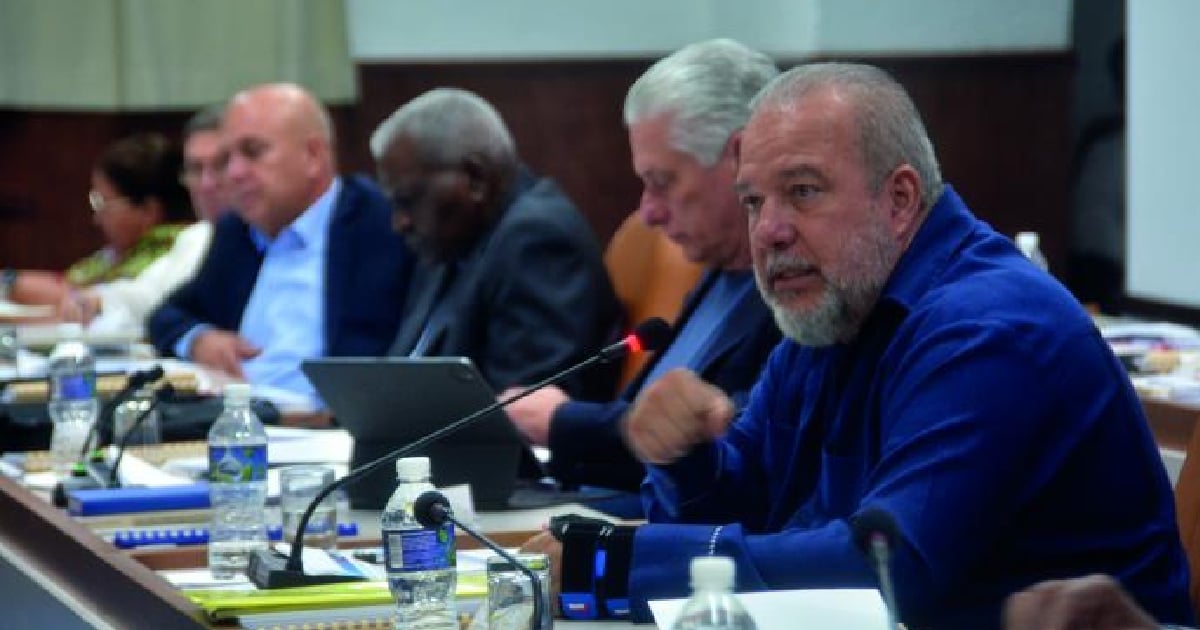
Related videos:
A year after implementing its plan to rectify distortions and revive the Cuban economy, the regime acknowledges that the expected results have not been achieved.
Cuban Prime Minister Manuel Marrero Cruz presented a report during the IX Plenary of the Central Committee of the Communist Party of Cuba (PCC), in which he acknowledged the regime's dissatisfaction with the lack of significant progress in the economic recovery, "despite the multiple measures implemented."
In his remarks, Marrero Cruz stated that although some economic distortions have been identified and contained, the actions taken have not been sufficient to produce the necessary results in key areas such as macroeconomic stabilization, reducing the fiscal deficit, and increasing domestic production.
The Prime Minister acknowledged that, overall, the Cuban economy continues to face serious difficulties, exacerbated by the global financial crisis and the pressure measures imposed by the U.S. embargo.
The official stated that, although actions have been taken in pricing policy, the reduction of subsidies, and fiscal control, the implemented measures have had a limited impact. "We are dissatisfied that progress has not been made with the necessary urgency, especially on issues that the population demands most," said Marrero Cruz.
The report emphasized that, in 2024, the country has not made the necessary progress in areas such as fiscal policy, national production, and the development of the socialist state enterprise. A lack of supplies, fuels, and energy has been a hindrance to production, while the results of the sugar harvest, crucial for the economy, have been particularly disappointing.
Despite this outlook, the government once again blamed the "economic blockade" from the United States, as well as the policy of foreign sanctions and the effects of globalization, for the turmoil the nation is facing, particularly regarding the availability of financial and energy resources.
Among the measures the government proposes for the upcoming year are the need to strengthen national production, expand the offerings of state goods and services, and continue working on modernizing the Cuban business system. Additionally, the importance of improving economic and social management at the municipal level was highlighted, as well as the need to adopt more effective policies to reduce social inequalities and protect the most vulnerable populations—measures that have not resolved the issue over the years.
The acknowledgment of failure in the economic plan occurs against a backdrop of growing social discontent, where Cubans continue to face shortages of basic goods, high inflation, and a lack of effective responses from the government. The scarcity of food and medicine, energy shortages, and difficulties accessing essential goods remain some of the biggest concerns for the population.
Frequently Asked Questions About the Economic and Social Situation in Cuba
Why did the Cuban regime's economic plan fail?
The economic plan of the Cuban regime has failed due to a lack of significant progress in macroeconomic stabilization, reduction of the fiscal deficit, and increase in domestic production. Despite the actions taken, such as price policies and subsidy reductions, the impact has been limited. Additionally, the global financial crisis and the U.S. embargo have exacerbated the country’s economic difficulties.
How does the U.S. embargo affect the Cuban economy?
The U.S. embargo is identified by the Cuban government as one of the main causes of its economic problems. According to the regime, economic sanctions hinder access to financial and energy resources, making economic recovery more difficult. However, many critics argue that the structural deficiencies of the socialist model also play a significant role in the crisis.
What are the main challenges facing national production in Cuba?
National production in Cuba is facing difficulties due to a lack of inputs, fuels, and energy. These issues have hindered key sectors, such as the sugar harvest, from meeting their goals. Additionally, state control and bureaucracy have stifled innovation and efficiency in agricultural production, according to critics of the Cuban economic model.
What measures is the Cuban government proposing to revitalize the economy?
The Cuban government proposes to strengthen national production, expand the offerings of state goods and services, and modernize the business system. There is also a focus on improving economic and social management in municipalities and adopting policies to reduce social inequalities. Despite these proposals, the population continues to face shortages of basic products and a lack of effective responses.
Filed under: